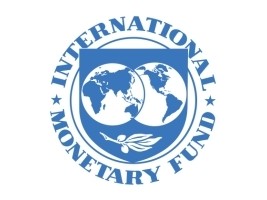|
||||||||||||||||||
|
|
Haiti - Economy : IMF, conclusion of consultations and prospects 2015-2019 30/05/2015 11:16:26
"In December 2014, Haiti completed an arrangement under the Extended Credit Facility (ECF), which helped to support economic growth and maintain macroeconomic stability after the 2010 earthquake. A drought that affected agricultural output slowed GDP growth to 2.7 percent in FY2014 (from 4.2 percent in FY2013), but inflation remained in the mid-single digits. The overall fiscal deficit of the central government remained high, in part due to one-off investment related to the Sandy storm. International reserves remained appropriate at about 5 months of imports. The implementation of structural reforms to support growth underpins the medium-term outlook, which is nonetheless subject to downside risks. GDP growth in FY2015 is expected to be between 2–3 percent, and to increase to 3–4 percent in the medium term. Inflation is projected to remain in the mid-single digits, and gross international reserves to be equivalent to between 4–5 months of imports, thanks to a prudent policy mix. Risks are mainly associated with a rebound in international oil prices, a stop in external financing from Venezuela, and weather events. Executive Board Assessment (Note 2) Directors commended the authorities for maintaining macroeconomic stability in the aftermath of the 2010 earthquake—noting positive growth, moderate inflation, adequate international reserves, and an improvement in Haiti’s debt assessment. Nevertheless, growth remains insufficient to reduce poverty significantly, and vulnerabilities remain against the backdrop of a challenging domestic and external environment. Directors agreed that the authorities’ new program appropriately focuses on entrenching macroeconomic stability, and ambitious structural reforms to enhance competitiveness, spur inclusive growth and strengthen policy buffers. They stressed that strong ownership and well-coordinated donor support will be important for the success of the program. Directors welcomed the approval of a revised FY2015 budget consistent with reducing the deficit of the non-financial public sector to about 2.5 percent of GDP over the medium term, in line with debt sustainability and program objectives. They supported the front-loaded fiscal consolidation, and noted that the adoption of an automatic fuel price mechanism and measures to improve the performance of the electricity sector will help contain fiscal risks, and create space for increased priority social and investment spending. They stressed the importance of mitigating the impact of the reforms on the poor and vulnerable. Going forward, Directors encouraged the authorities to follow through on reforms to improve public financial management, including the implementation of the Treasury Single Account; and to strengthen tax administration and collection; and budgetary transparency. Directors encouraged the authorities to maintain a tight monetary stance, as needed, until the fiscal deficit is reduced, and to be ready to increase exchange rate flexibility, in order to preserve adequate international reserve buffers and anchor inflationary expectations. A number of Directors expressed concern that, if downside risks materialize, meeting the target for Net International Reserves could be challenging. Directors took note of the contingency measures that may need to be implemented in such case. Directors also encouraged the authorities to strengthen the monetary policy framework, through improvements in reserve management and the functioning of the foreign exchange market. Directors noted that the banking sector remains well-capitalized and profitable, while calling for continued vigilance against financial sector risks. They also stressed the importance of sustained efforts to further develop financial intermediation and inclusion. In this regard, they welcomed adoption of the new financial inclusion strategy, and encouraged the authorities to enact pending laws on financial cooperatives and microfinance institutions. Directors supported the program’s emphasis on structural reforms designed to lift Haiti’s growth potential and enhance its competitiveness. Priorities include: improvements to property rights, credit access and labor productivity; streamlining business regulations; and infrastructure development—most notably by strengthening the governance and performance of the electricity sector. Directors encouraged the authorities to improve the quality of the economic data, with technical assistance from the Fund and other donors." Download Table of selected economic and financial indicators, 2012/13–2018/19 : https://www.haitilibre.com/docs/tableau-fmi-29-05-EN.pdf Note 1 : Under Article IV of the IMF's Articles of Agreement, the IMF holds bilateral discussions with members, usually every year. A staff team visits the country, collects economic and financial information, and discusses with officials the country's economic developments and policies. On return to headquarters, the staff prepares a report, which forms the basis for discussion by the Executive Board. Note 2 : At the conclusion of the discussion, the Managing Director, as Chairman of the Board, summarizes the views of Executive Directors, and this summary is transmitted to the country's authorities. HL/ HaitiLibre
|
|
|
Why HaitiLibre ? |
Contact us |
Français
Copyright © 2010 - 2024 Haitilibre.com |



